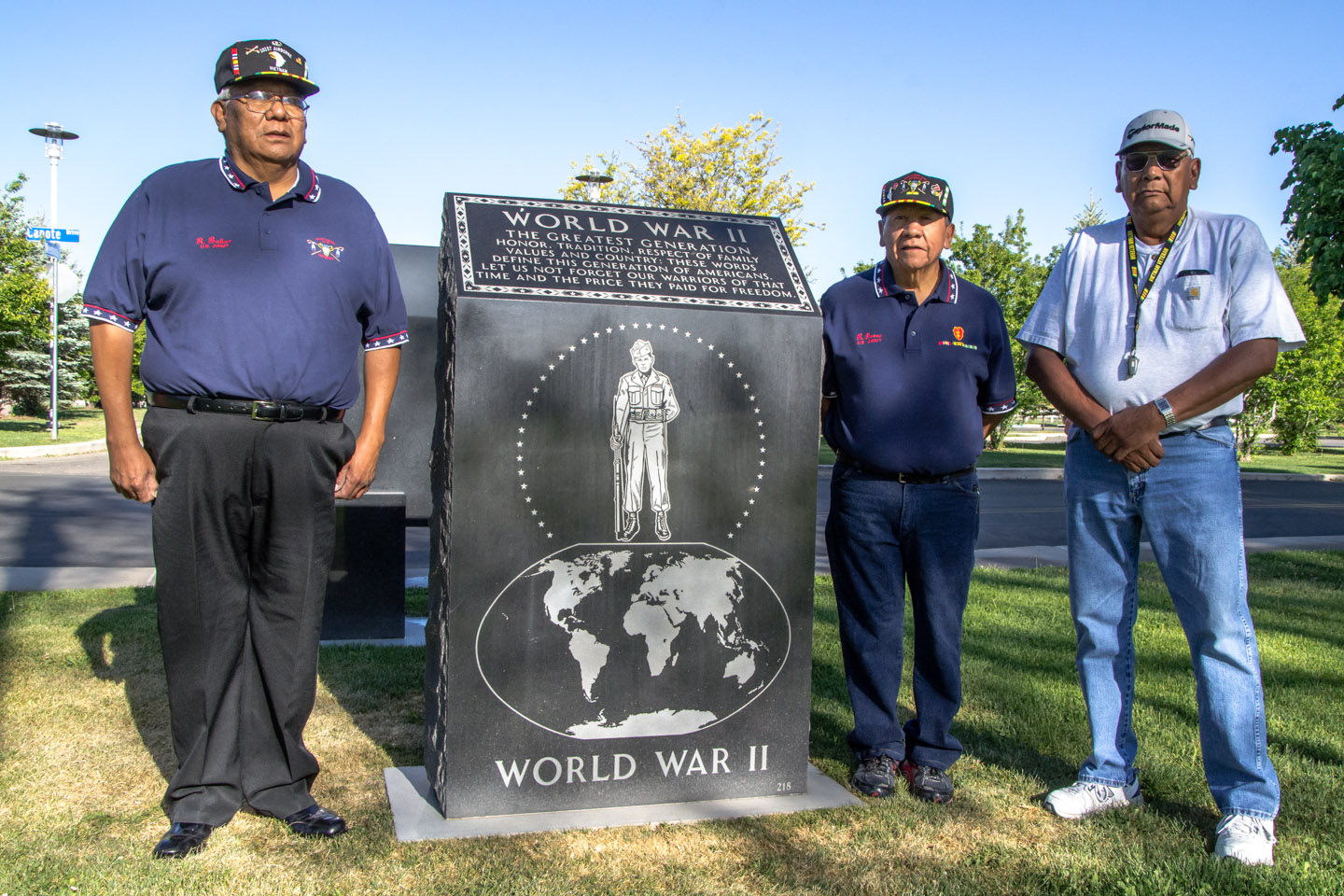He was a warrior who prevailed the ever-going struggles of World War II, fighting for his people and honor. He continued the battle with the wars of tribal sovereignty by leading his people as Tribal Chairman from 1961-1962. Over fifty years later, the late Anthony C. Burch still lives strong in the hearts of many through his influence of strength, courage, and direction.
On the 70th anniversary of D-Day, Southern Ute tribal veterans Howard D. Richards Sr., Ronnie Baker, and Rod Grove gathered in Veterans Memorial Park to commemorate the late chairman on Friday, June 6.
“He was a man who served his people,” said Richards. “We’re here to honor our soldier, to tell the people what we did so they would never forget.”
Anthony C. Burch was the older brother of late Tribal Chairman, Leonard C. Burch. He was born on June 25, 1925 to parents Sam and Clara C. Burch. He was raised in the Spring Creek region west of Ft. Collins, Colo., where he attended school.
Burch enlisted in the United States Army in 1943 where he operated in the combat division as a rifleman, making him one of the forty-three Southern Ute tribal members who served during that time.
He witnessed the invasion of Normandy firsthand, aiding his men in pushing back enemy forces. Burch continued the battle for years before returning home to the Southern Ute Indian Reservation in 1945, after being honorably discharged. He received the Purple Heart Medal, WWII Victory Medal, and a Good Conduct Medal for his actions. It was that time where he discovered his next fight would be for his people, guiding them to brighter futures.
Burch took the reigns as Southern Ute Indian Tribal Chairman in 1961, leading his people during a one-year term before being selected as a tribal council member in 1962. He dedicated his services to the Southern Ute Indian Tribe for several years. After his service in tribal council, Burch would spend the many years travelling the nation, finding settlement in Utah, Montana, and Alaska. He officially made his return home to the Southern Ute Indian Reservation in 2004 where he was appointed to fill a temporary vacancy on the Southern Ute Tribal Council, which would be his last appointment to the Southern Ute Tribe.
He married Lillian Burch in 1964. The couple stayed in companionship until Lillian’s death in 1989. An avid outdoorsman, Burch spend the rest of his years on the Southern Ute Indian Reservation horseback riding, hunting, fishing, and hiking the wilderness until his death on October 31, 2008. He is survived by his daughters, Roxanne Carney; Winterfawn Rey; Revea Briggs; stepson, Daniel J. Walker, numerous relatives and many close friends.
Howard D. Richards Sr. stated how important it is to teach the youth about the history of the Tribe’s fallen.
“A lot of young people aren’t aware of what [the soldiers] did,” he said. “We need to educate our youth in understanding what these monuments mean. One day, we won’t be here to talk about that.”

